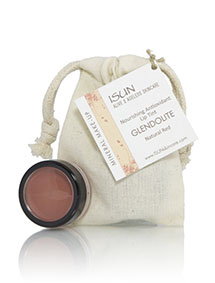
I just came out to my patio to write this post. I longed to feel the sun on my skin for the first time today. Mmm, it feels so good. I feel warm, embraced, relaxed. There is a reason why we love the sun – why it feels so delicious on our skin, why we feel happy and energized on sunny days. It is because we need the sun to live! Not only does it nourish our souls, but it provides our body with essential nutrients. It seems that with fears of skin cancer and skin damage, sun exposure has almost been demonized in the last 20 years. It’s time that we know the truth. We can protect ourselves from skin cancer and skin damage AND enjoy the vital nourishment are bodies are designed to absorb from it’s radiance.
This fabulous article is a revelation about the sun and our health. Also, look for tips on how to sunbathe SAFELY and stunning facts about sun exposure after the article.
The following article is by Dr. Joseph Mercola:
Appropriate Sun Exposure More Likely to Prevent Than Cause Melanoma
Over the years, several studies have already confirmed that appropriate sun exposure actually helps prevent skin cancer. In fact, melanoma occurrence has been found to decrease with greater sun exposure, and can be increased by sunscreens.
One such study discovered that melanoma patients that had higher levels of sun exposure were less likely to die than other melanoma patients, and patients who already had melanoma and got a lot of sun exposure were prone to a less aggressive tumor type.
Another more recent Italian study, published in the European Journal of Cancer in June 2008, also confirms and supports earlier studies showing improved survival rates in melanoma patients who were previously exposed to more sunlight.
Not only that, but melanoma is actually more common in indoor workers than in outdoor workers to begin with. It is also more common on regions of your body that are not exposed to the sun at all. Additionally, UVB radiation has been found to delay the appearance of melanoma if you are genetically predisposed or prone to skin cancer.
How can this be? Melanoma occurrence is rising, and experts are still warning you to avoid sun exposure to cut your risk. Are they really that wrong?
In a word, yes!
What is the Real Cause Behind Rising Melanoma Rates?
Well, what they’re not telling you is that melanoma rates are rising as sun exposure and vitamin D status is decreasing dramatically. Statistics alone will tell you there is a serious flaw in the current recommendations to stay out of the sun to avoid skin cancer.
More recent research into vitamin D and skin damage shows that although the sun does increase genetic damage in your skin, and can cause skin cancer, your body has a cleverly designed system to avert this risk.
When you stay out of the sun entirely, you effectively avoid the system nature created to help prevent skin cancer naturally, because the key to unlock this mechanism is vitamin D.
As you probably know by now, vitamin D is formed in your skin from exposure to sunlight. The vitamin D then goes directly to the genes in your skin where it helps prevent the types of abnormalities that ultraviolet light causes.
Hence, when you avoid the sun entirely, or slather on sun block whenever you go out, your skin is not making any vitamin D, and you’re left without this built-in cancer protection. This is one of the primary reasons for the rise in melanoma. This in spite of the fact that most folks are following the widely publicized recommendations to avoid sun exposure and use sunscreen.
Vitamin D – the Master Key to Optimal Health
But it does more than just that. Vitamin D is different from other vitamins in that it influences your entire body — receptors that respond to the vitamin have been found in almost every type of human cell, from your brain to your bones. This is why researchers are finding health benefits from vitamin D in virtually every area they look.
For example, optimizing your vitamin D levels can help you to prevent as many as 16 different types of cancer including pancreatic, lung, breast, ovarian, prostate, and colon cancers. And vitamin D does not have just a slight impact on your cancer risk. It can cut your risk by as much as 60 percent!
However, it’s not like turning a light switch. It’s not a matter of having vitamin D or not – it’s all a question of dose.
In order to reap the benefits you need to make sure your levels are within therapeutic range.
According to Dr. Heaney, your body requires 4,000 IU’s daily just to maintain its current vitamin D level. In order to actually raise your levels, you’d have to increase either your exposure to sunshine, or supplement with oral vitamin D3.
The following excerpt is from Eating for Beauty by David Wolfe:
Sunshine on the skin is an essential component of beauty and health. Denser bones, stronger muscles, richer blood, healthier nerves, and greater endurance are created by regular exposure to sunshine.
Let’s consider this information, and yet understand that oversunning, like overeating, is harmful. Oversunning causes free-radical collagen damage to the skin.
Basically the prevention of sun-skin damge or a sunburn is easy and requires only a little forethought.
First, consider the fairness of your skin. Melanin is the pigment that gtant to the sun-damage causedives skin it’s color. More melanin creates darker skin. With more melanin, one is more resistant to the sun-damage caused by ultra-violet radiation.
Second, employ a simple strategy: enjoy only ten minutes exposure to the sun on the first day – five minutes on the front, and five minutes on the back. This should be steadily increased to 30 minutes exposure on the front, and 30 minutes on the back. This full hour of sun is sufficient for anyone.
Suggestions for sun-bathing
The exposure strategy above is to be done WITHOUT sunscreen! Yes, an hour total per day without sunscreen. PLEASE, do be cautious however to build up to this VERY gradually. It may take years, even. I have extremely fair skin and have just come from living in sun-anemic Seattle for seven years, so I am only at 20 to 30 minutes total right now. You do need to expose large surfaces of skin, just a foot poking out from the shade will not cut it.
I generally use Antioxidant Sun Butter on my face only and sometimes wear a hat while sun-bathing. I use a gorgeous oil blend on my body. I do encourage the use of oils that naturally block UV. Our Everybody Loves the Sunshine oil blend is the PERFECT sun-bathing attendant. Organic, Cold-Pressed, Extra Virgin Coconut Oil prevents the skin from drying out, smells amazing, and blocks about 20% of UV rays naturally. It is extremely nourishing to the skin and is cooling on hot days. Organic, Raw, Unrefined Shea Butter, is also a wonderful sun-bathing moisturizer, blocking about 30% of ultraviolet radiation. Shea Butter has a delightful nutty, cocoa aroma. It thicker than Coconut oil, making it a great choice for drier climates. It also helps to lighten age spots when applied daily!
Proper nutrition provides a natural sunscreen
The most important natural way to protect yourself from UV rays is to increase your intake of phytonutrients, also known as phytochemicals. The term “phytonutrients” means plant nutrients. Plants contain hundreds of nutrients beyond vitamins and minerals. These constituents protect plants from disease, injuries, insects, poisons, pollutants, drought, excessive heat, and ultraviolet rays. They form the plant’s immune system. Phytochemicals are a natural bioactive compound found in plant foods that work with nutrients and fiber to protect our bodies against disease.
Most phytonutrients occur as pigments. Colorful fruits and vegetables are thus rich in phytonutrients. One of the major classes of phytonutrients are antioxidants. Besides vitamins and minerals, antioxidants include polyphenols, carotenoids and flavonoids. There is growing scientific consensus that these compounds play a crucial role in the prevention of chronic, degenerative disease, including many cancers. Phytonutrients can also lower cholesterol, reduce blood pressure, detoxify blood, relieve allergies, and prevent pre-mature aging.
Eating a plant-based diet, high in fruits and vegetables will assure that you get plenty of phytonutrients. Cooking and especially processing does damage these nutrients significantly, so consuming them fresh, as nature intended is best.
I can personally attest to the fact that consuming an abundance of phytonutrients not only improves your health significantly, but it also protects your skin from sun damage. I am extremely fair and used to burn within 5 to 10 minutes of being in the sun. Now, after years of consuming a plant-based, nutrient-dense diet, I barely ever burn and I only use sunscreen on my body when I am going on a boat or to the beach and plan to be in the sun all day. I do like to use Antioxidant Sun Butter in on my face daily as it is such a tender spot.
All plant foods are high in phytonutrients. Here is list of some specific examples of foods high in phytonutrients to delight in:
* tomato – lycopene, beta carotene, vitamin C * broccoli – vitamin C, indole-3-carbinol, sulphoraphane, lignans * garlic – thiosulphonates, limonene, quercitin * flax seeds – lignans * citrus fruits – monoterpenes, coumarin, cryptoxanthin, vitamin C, ferulic acid, oxalic acid * blueberries – tannic acid, lignans, anthocyanins * sweet potatoes – beta carotene * chilli peppers – capsaicin * legumes: beans, peas, lentils – omega fatty acids, saponins, catechins, quercitin, lutein, lignans * cranberries – ellagic acid, anthocyanins* green tea – quercitin, catechins, tannic acid, oxalic acid, lignans
* red grapes – quercitin, resveratrol, catechins, ellagic acid
* papaya – cryptoxanthin
* carrots – beta carotene
* brassicates: kale, cabbage, brussels sprouts, cauliflower – lutein, zeaxanthin, sulphoraphane, indole-3-carbinol
* nuts and seeds – resveratrol, phytic acid, phytosterols, protease inhibitors
* artichoke – silymarin, caffeic acid, ferulic acid
* onions – quercitin, thiosulphonates
* apples – quercitin, catechins, tartaric acid
* spinach – oxalic acid, lutein, zeaxanthin
* mangos – cryptoxanthin
* pumpkin – lignans, carotenes
* eggplant
* shiitake mushrooms
* apricots
* squash
* watermelon – lycopene
* pink grapefruit – lycopene
* cacao – flavonoids, epicatechin
* açai – vitamin C, anthocyanins, omega-3, omega-6, Beta-sitosterol
I will leave you with more stunning facts about sun exposure to ponder from Eating for Beauty by David Wolfe:
- Vitamin D, which assists in mineralizing the bones is formed when the skin is exposed to sunshine.
- Sunshine increases the amount of iron in the blood.
- USA cancer rates are highest in the Northern states with the least sunshine.
- Rates of breast, prostate, ovarian, and colon cancer are lower in people with more sun exposure.
- Sun exposure may reduce breast cancer up to 30-40%, and ovarian cancer by 80%.
- Sunshine raises positive moods, especially in people with Seasonal Affective Disorder.
- Psoriatic lesions are reduced by sunshine.
- Direct sun exposure kills most forms of mold, fungus, and yeast (althelete’s foot, candida, etc.)
- Daily sunshine exposure normalizes hormones levels in women and men.
You were created to bathe in the sun’s love. Enjoy with balance and harmony!





I was taught that melanomas were associated with the number of blistering sunburns someone has had. Which makes sense why someone who can tan, and gets regular sun exposure would have less risk. Those fair skinned who rarely venture outside, but when they do burn badly would be more at risk. Even with the “new” theory above, I think this rule of thumb still fits. If you’re fair, keep your sunscreen!
Thank so much for your comment! I absolutely agree with you. Sunscreen is essential when in the sun for longer than thirty minutes to an hour depending on your tolerance, especially for those who have fair skin. Burning is NEVER is good idea, even tanning will prematurely age one’s skin! We all need some sun on our skin (15 minutes may be long enough for fair skin) without sunscreen to get the benefits of Vitamin D from the sun. Sunscreen will prevent the synthesis of Vitamin D, which is not easily absorbed, if at all, from Vitamin D supplementation. After a short period of time (which depends on the fairness of your skin, your diet and health, and built up tolerance), definitely use sunscreen and always avoid burning, if possible.
[…] Does Sun Exposure Really Cause Melanoma? | Living Earth Beauty […]